Poll: The great unifier
The Politics of Beer
Recognizing that the recent election might have given Thinking Minnesota readers their fill of typical political polling, we thought they might enjoy something different: What do Minnesotans think about beer? (See the cover story, “Beer Boom: How deregulation and tax cuts enabled craft brewers to thrive,” page 40.)
We interviewed 500 registered Minnesota voters on December 5-6, 2018 for this study. The margin of error is +/-4.38 percent.
We asked Minnesotans who drink alcohol what they preferred. We found, for example, that Republicans are most likely to drink beer, while Democrats are most likely to drink liquor or spirits. Overall, Minnesotans slightly prefer beer (37 percent) to wine (33 percent) or liquor (20 percent). More Republicans (42 percent) and Independents (37 percent) favor beer, while a plurality of Democrats (35 percent) prefer wine.
Similarly, city dwellers prefer beer (48 percent) by a wide margin over wine (26 percent) or liquor (19 percent). Suburbanites are split with a slight preference for wine (37 percent) over beer (36 percent). People in small towns prefer wine over beer by 10 points (39 percent to 29 percent), while people from rural Minnesota prefer beer over wine by the same margin (39 percent to 29 percent).
Republicans prefer traditional American domestic brands of beer by a wide margin (48 percent to 32 percent), while Democrats prefer craft brews over traditional domestic brands (45 percent to 26 percent). Residents of the Twin Cities prefer craft beer over traditional brands (45 percent to 31 percent), people who live outside the Twin Cities prefer traditional brands (40 percent to 36 percent). Urban and suburban beer drinkers prefer craft brands by an identical margin (41 percent to 34 percent). People in rural Minnesota prefer traditional brands (39 percent to 34 percent).
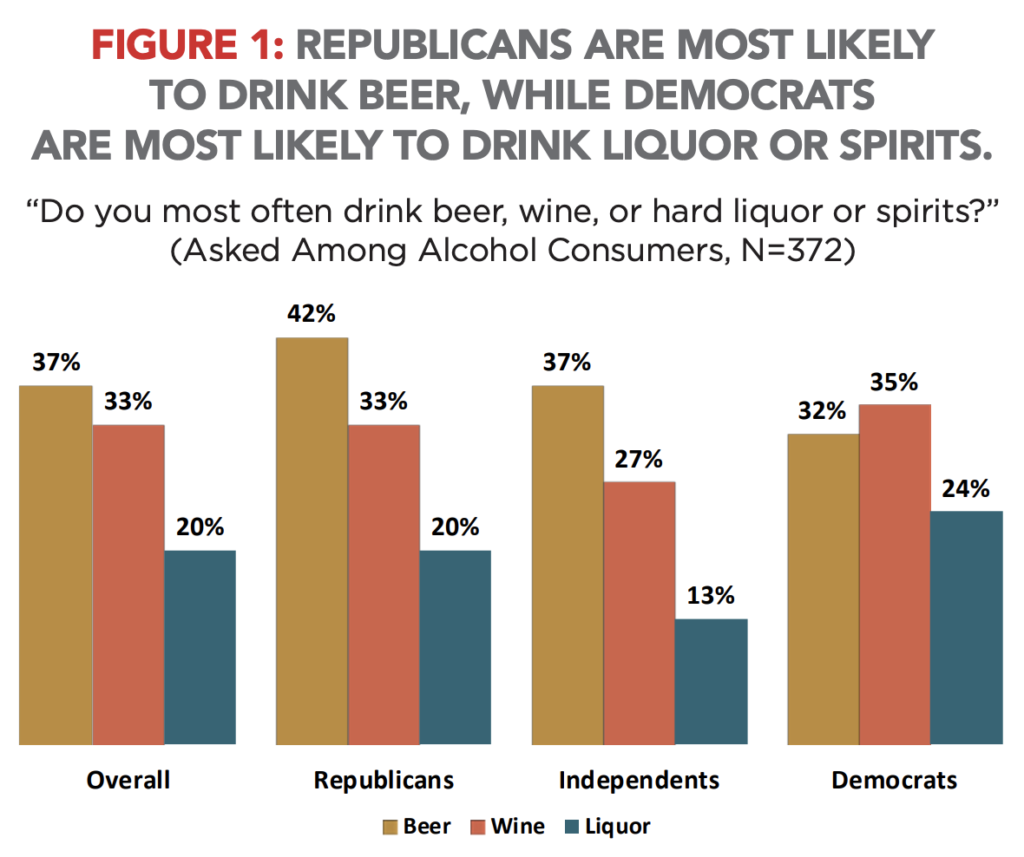
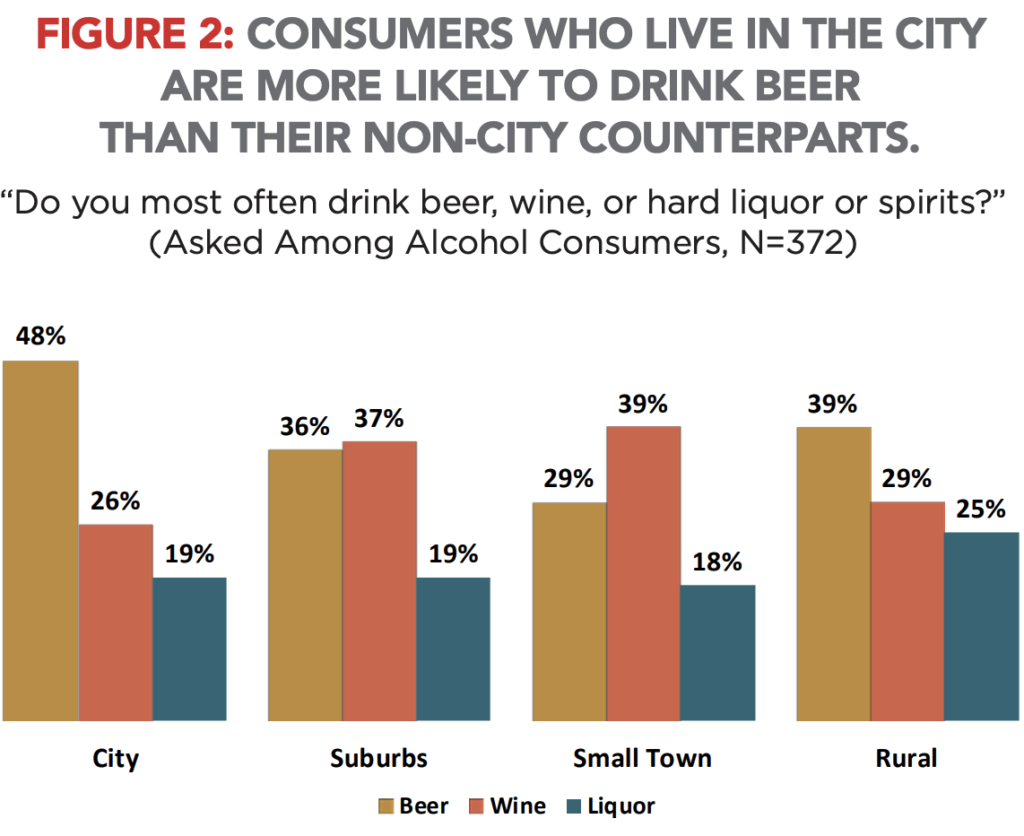
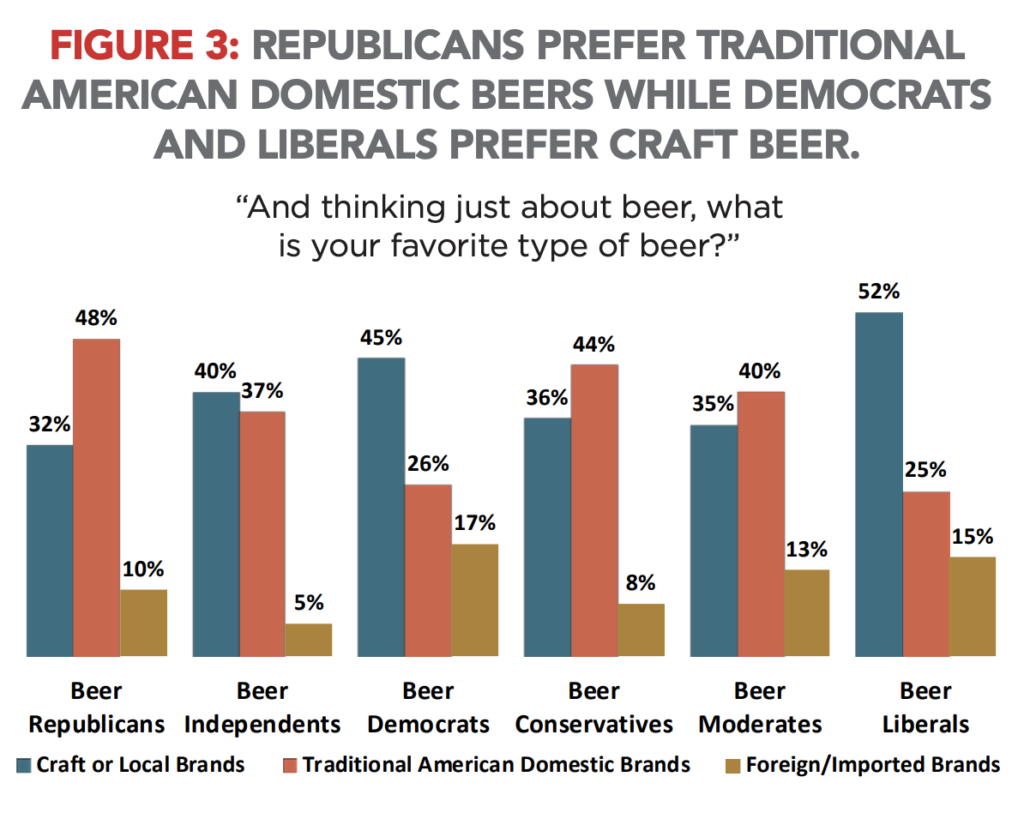
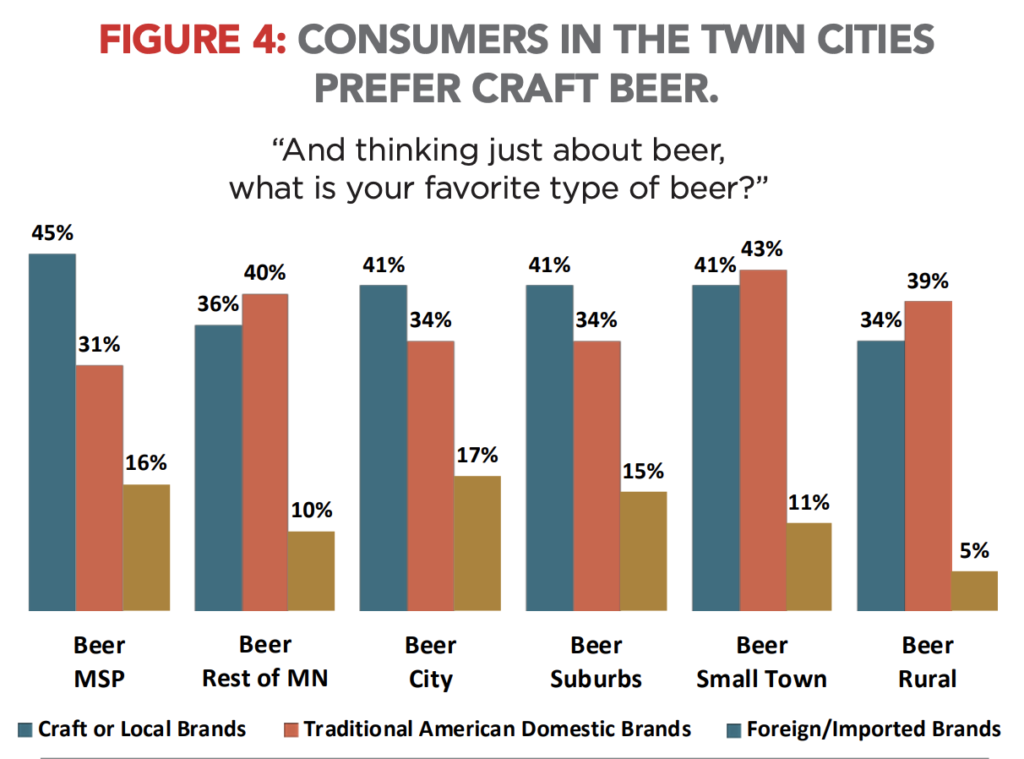
Minnesota voters by a wide margin, across all parties, oppose regulations that forbid craft brewers from selling food on their own sites. Overall, Minnesotans oppose those regulations by 63 percent to 24 percent. Republican opposition to those regulations is slightly more (67 percent to 21 percent), but Independents (64 percent to 23 percent) and Democrats (59 percent to 26 percent) also line up decidedly against those regulations. Even non-beer drinkers oppose these regulations by a two-to-one margin (53 percent to 25 percent).
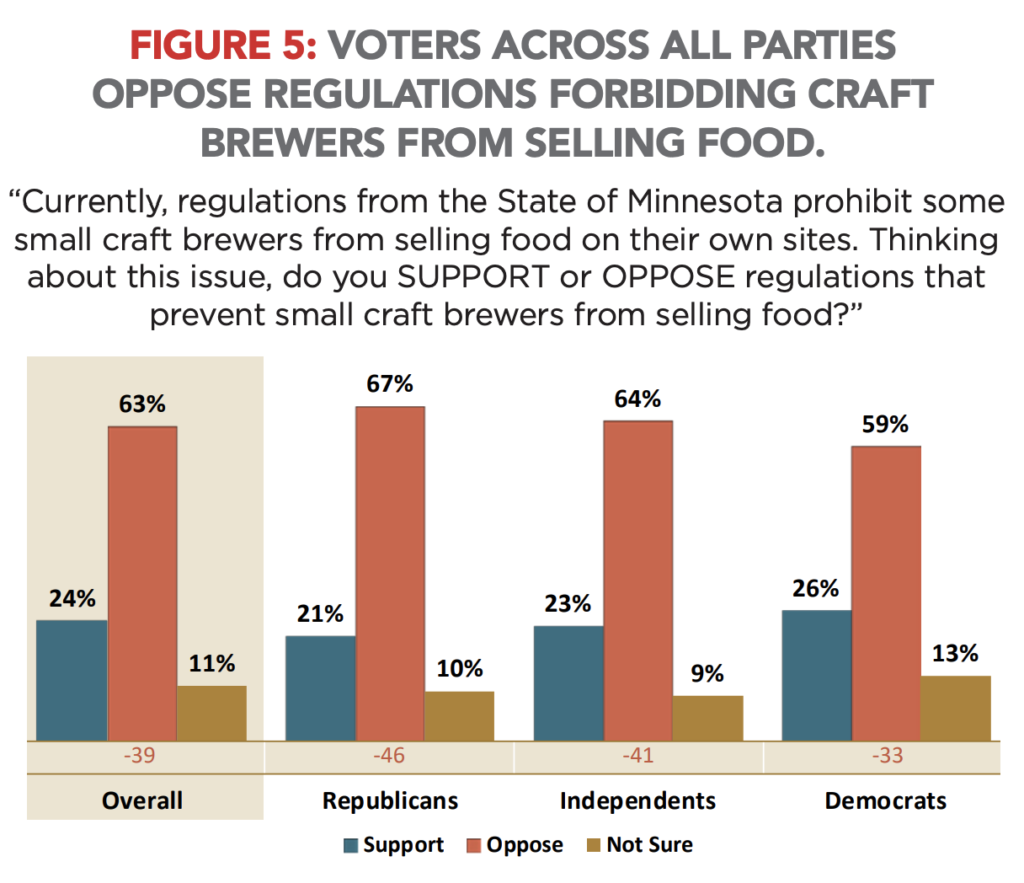
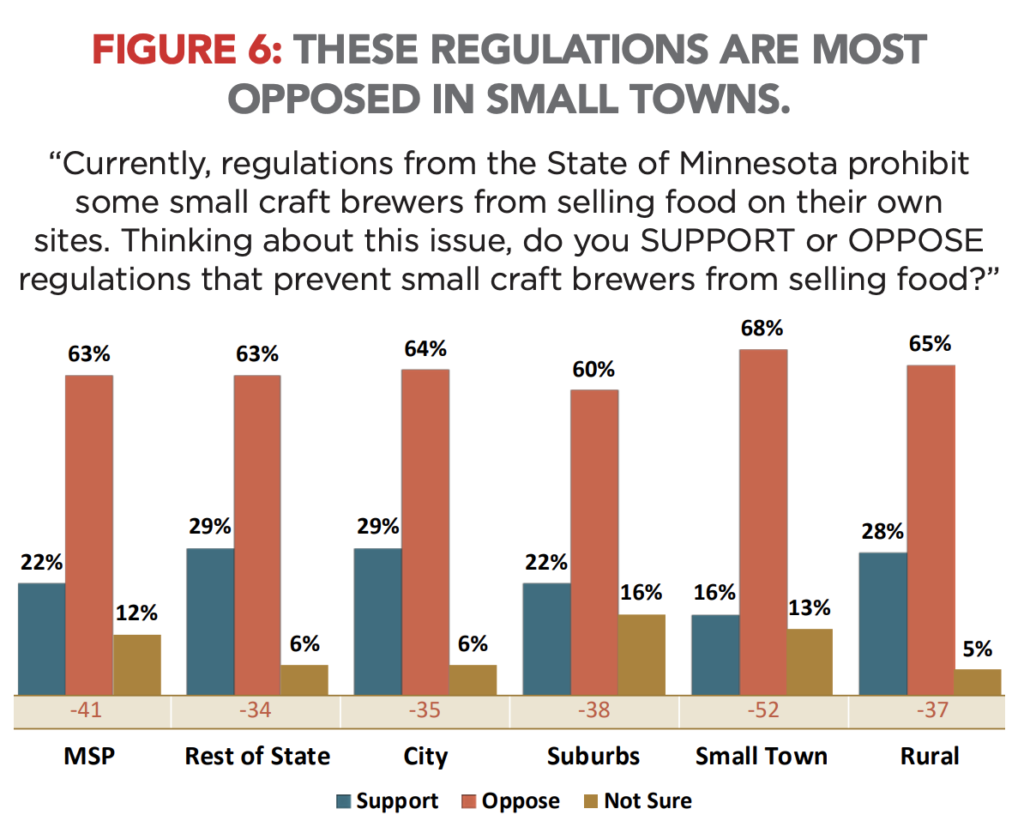
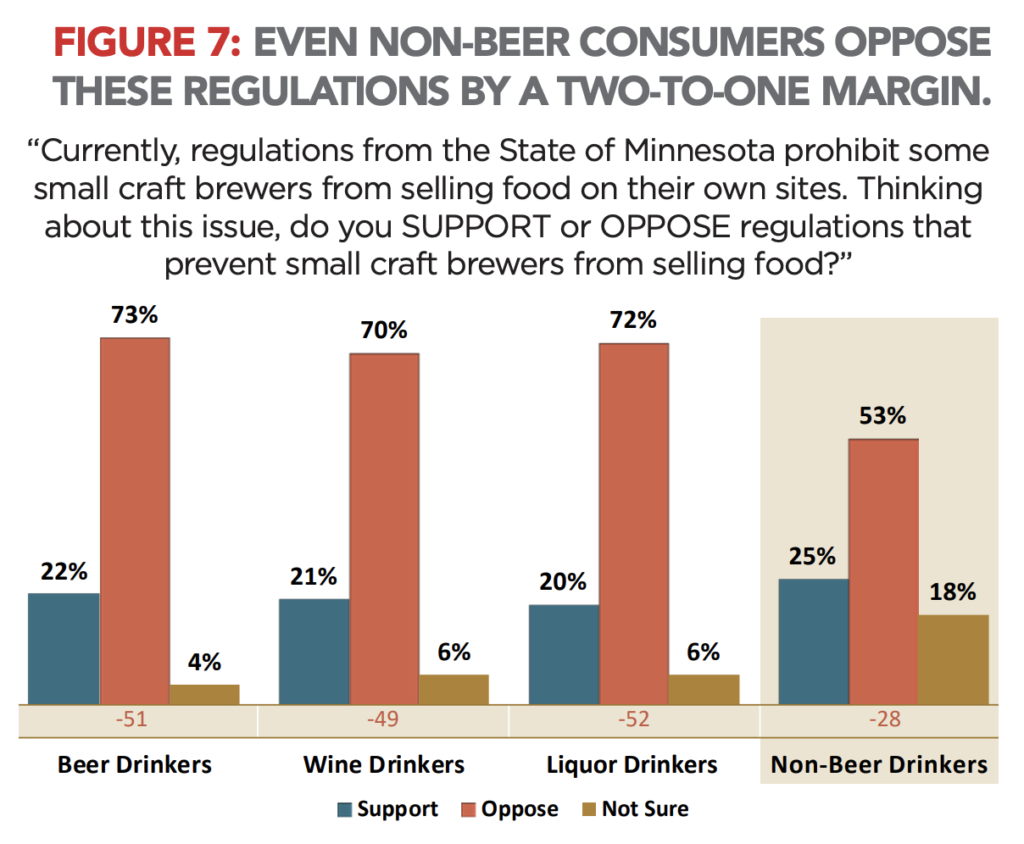
The Budget Surplus
Half of Minnesotans want the surplus spent on budget increases for education (34 percent) or roads (16 percent). Forty percent would like to see it either returned directly to taxpayers (29 percent) or applied to an overall tax cut (11 percent).
The Economy
A majority of voters (53 percent) say Minnesota’s economy is doing about as well as the national economy. Thirty percent say it is growing faster than the national economy and 11 percent say it lags the national economy.
Republicans say it is the same (61 percent), faster (18 percent) or lagging (16 percent); Independents are at 53 percent to 23 percent to 15 percent; Democrats are the most optimistic with 45 percent saying the economy is outpacing the national economy.
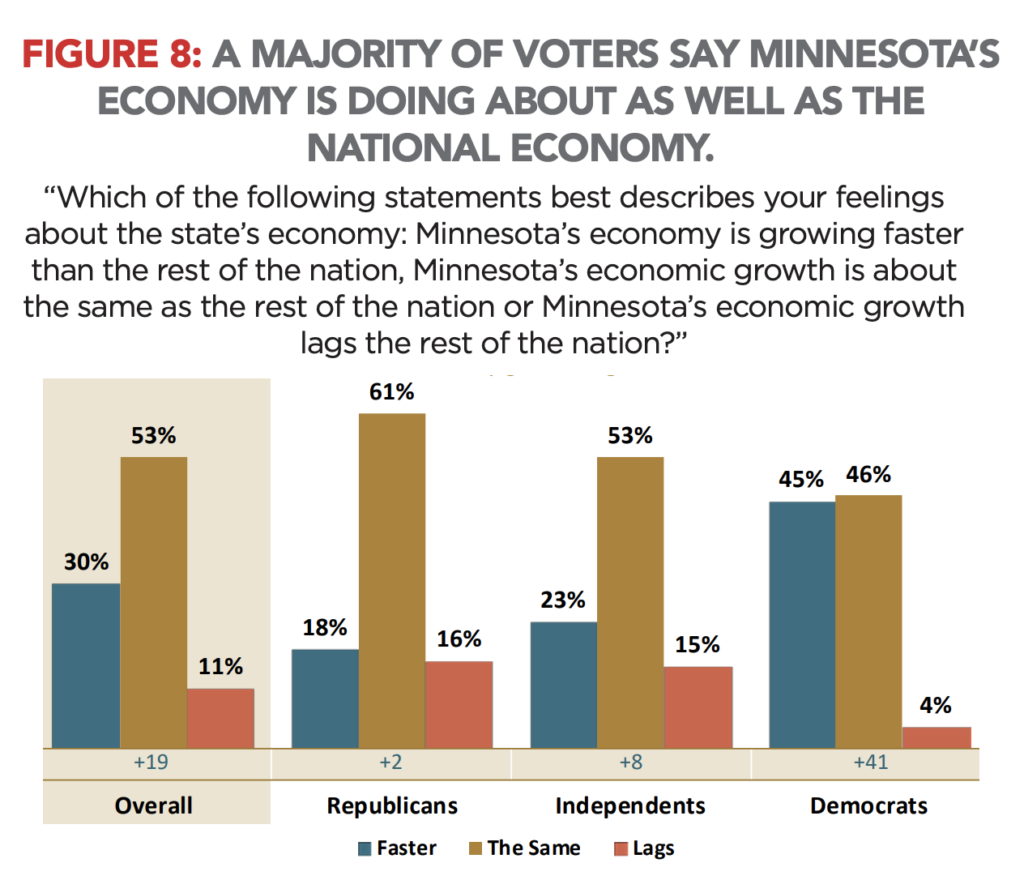
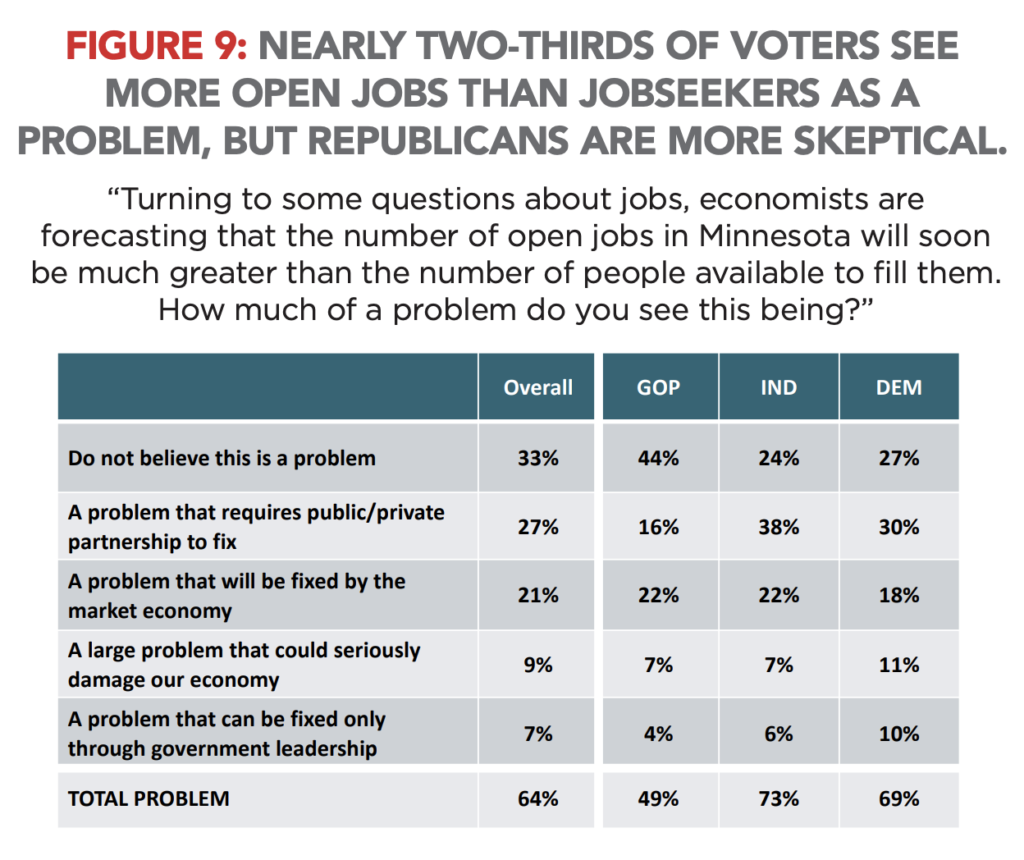
The Skills Gap
Nearly two-thirds of Minnesotans (64 percent) view the worker shortage as a problem, led by Independents (73 percent) and Democrats (69 percent), but Republicans are more skeptical (49 percent). Voters are most likely to place blame for the skills gap on educators emphasizing a four-year degree as the sole pathway to career prosperity (31 percent). Voters also say young workers don’t have interest in those types of careers (22 percent), and that post-secondary schools don’t offer an adequate technical education curriculum (14 percent). Thirty-three percent do not believe the skills gap is a problem.
$15 Minimum Wage
Nearly half of all Minnesotans (47 percent) say that a $15 minimum wage would hurt small businesses. A partisan breakdown: Republicans, 76 percent; Independents, 47 percent; and Democrats, 39 percent. Twenty-one percent agree it might hurt small businesses, but is worth the negative effects: Democrats, 33 percent; Independents, 19 percent; and Republicans, 9 percent. Interestingly, union and non-union households alike agree (46 percent and 48 percent, respectively) that the wage will hurt small businesses.
Other Proposals
Cutting state spending and lowering taxes remain popular proposals.
• Cut spending 10 to 20 percent across-the-board by eliminating waste and fraud (76 percent)
• Lower personal income tax rates for all tax brackets (71 percent)
• Impose a requirement that 50 percent of Minnesota’s energy comes from wind and solar (67 percent)
• Abolish Minnesota’s estate tax (58 percent)
• Streamline the permitting process for mining projects in Minnesota (49 percent)
• Limit the power of the Metropolitan Council to dictate housing and transportation policy (48 percent)